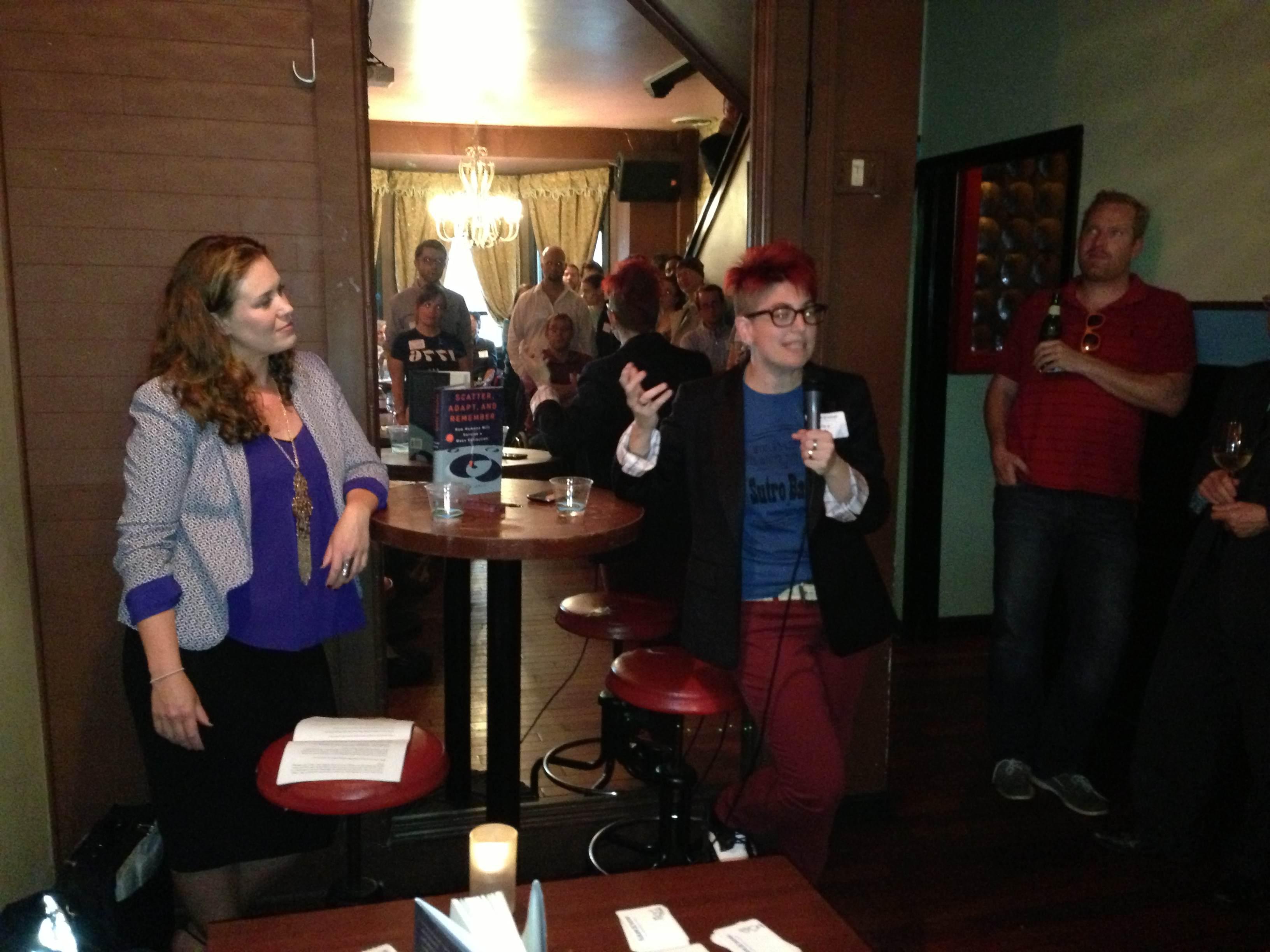The bad news: It is very likely that sometime in the next million years, Earth will face an extinction event of some sort. According to Annalee Newitz, we could be “locked up in ice, bombarded with cosmic radiation, ripped up by mega volcanoes. … An invasive species could take over the planet, the earth could be shattered by asteroid impacts, and it could also be choked up by greenhouse gases.”
The good news: Even if billions die, there will still be billions left. “There’s always survivors,” she says.
Newitz is editor of the sci-fi site io9 and the author of the new book Scatter, Adapt, and Remember: How Humans Will Survive a Mass Extinction. On Wednesday night, at a Future Tense happy hour in Washington, D.C., she discussed her book with Megan Garber, who covers technology for the Atlantic’s technology channel. Extinction, apocalypse, climate farming, Exodus, space elevators, “good Death Stars”—it was your usual D.C. cocktail chatter.
Newitz told the audience at the Science Club that she has long nursed “a fascination for doom and apocalypse,” so when she started writing the book, she envisioned it as a “nonfiction version of a Godzilla movie.” But in looking at the history of extinction events—both before and during humanity’s time on Earth so far—and assessing the risks that will face us in the million years to come, she realized that in truth, “The apocalypse is complicated.” And we need to start planning for it.
Scatter, Adapt, and Remember emphasizes the vital role storytelling plays when it comes to human survival. The way we share information can shape how others see the world and the actions they take. For instance, the story of Exodus is a great lesson for long-term survival, she argued. It demonstrates how there can be “bravery in retreat”: If it’s clear that things are going in a terrible direction, “Don’t stay and fight. Leave.” In this case, that means “we need to be putting ourselves on a path toward space colonization, because the Earth is a dangerous place,” she says. (Newitz also recently discussed in Slate why humanity needs a plan to escape to space.)
Another important part of the Exodus story, Newitz says, is that the Jews who wandered the desert knew that they themselves would not make it to the Promised Land. But future generations would—and we, too, need to think beyond the present day. Much as she would like to, Newitz realizes that she herself may never make it to Mars. She wants others to make the trip there eventually, but humanity isn’t great at taking the long view. “We like short-term payoffs. We like pleasures that happen in our lifetimes. We aren’t going to be satisfied if someone says, ‘Hey, in a thousand years, it’s going to be great.’ ”
Whatever threats come our way in the millennia to come, Newitz is optimistic. “The one thing I know for sure is we will survive,” she says. “We have all the characteristics of a survivor species. It’s just, what the hell will we look like at the end of this?”
